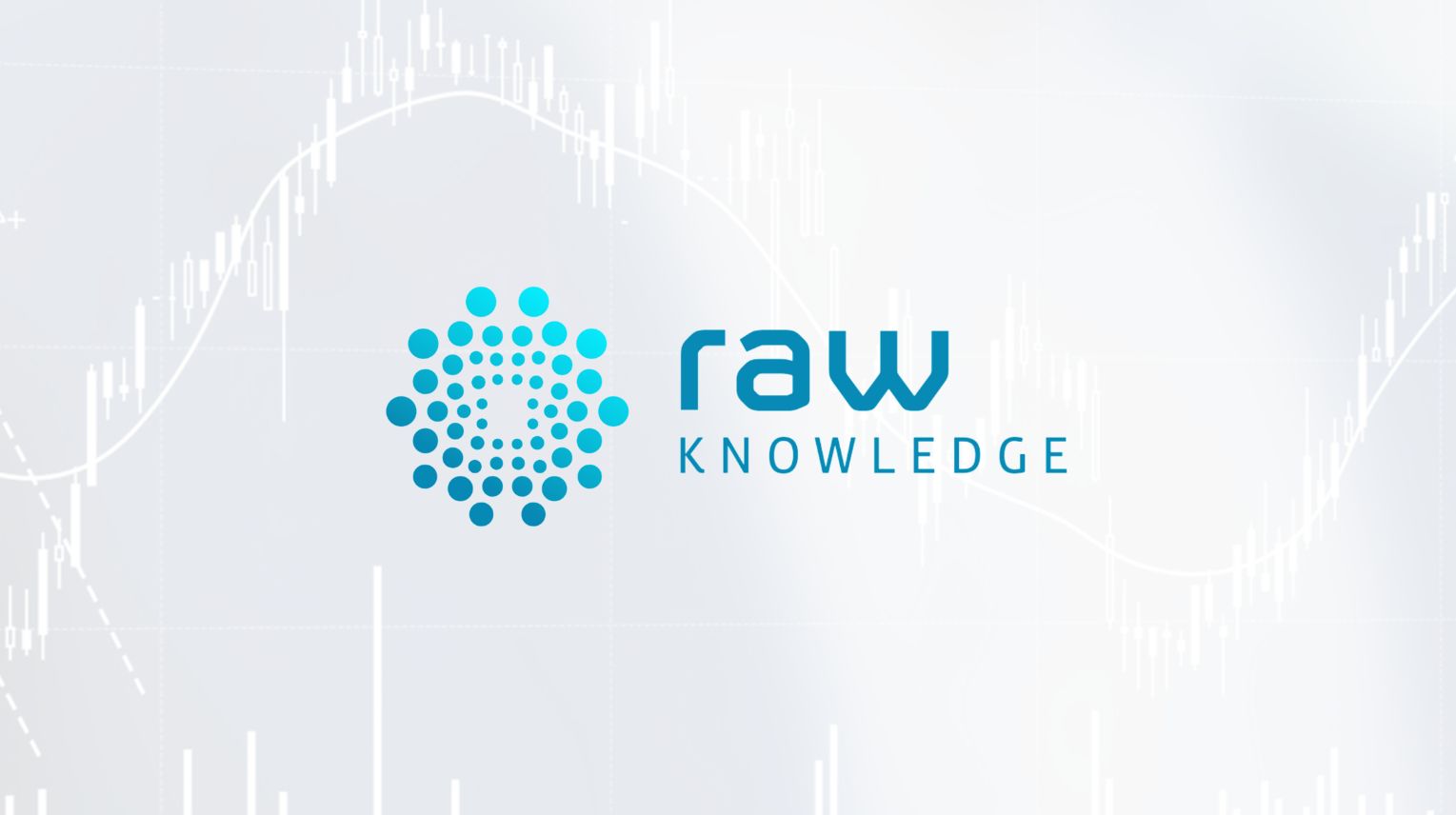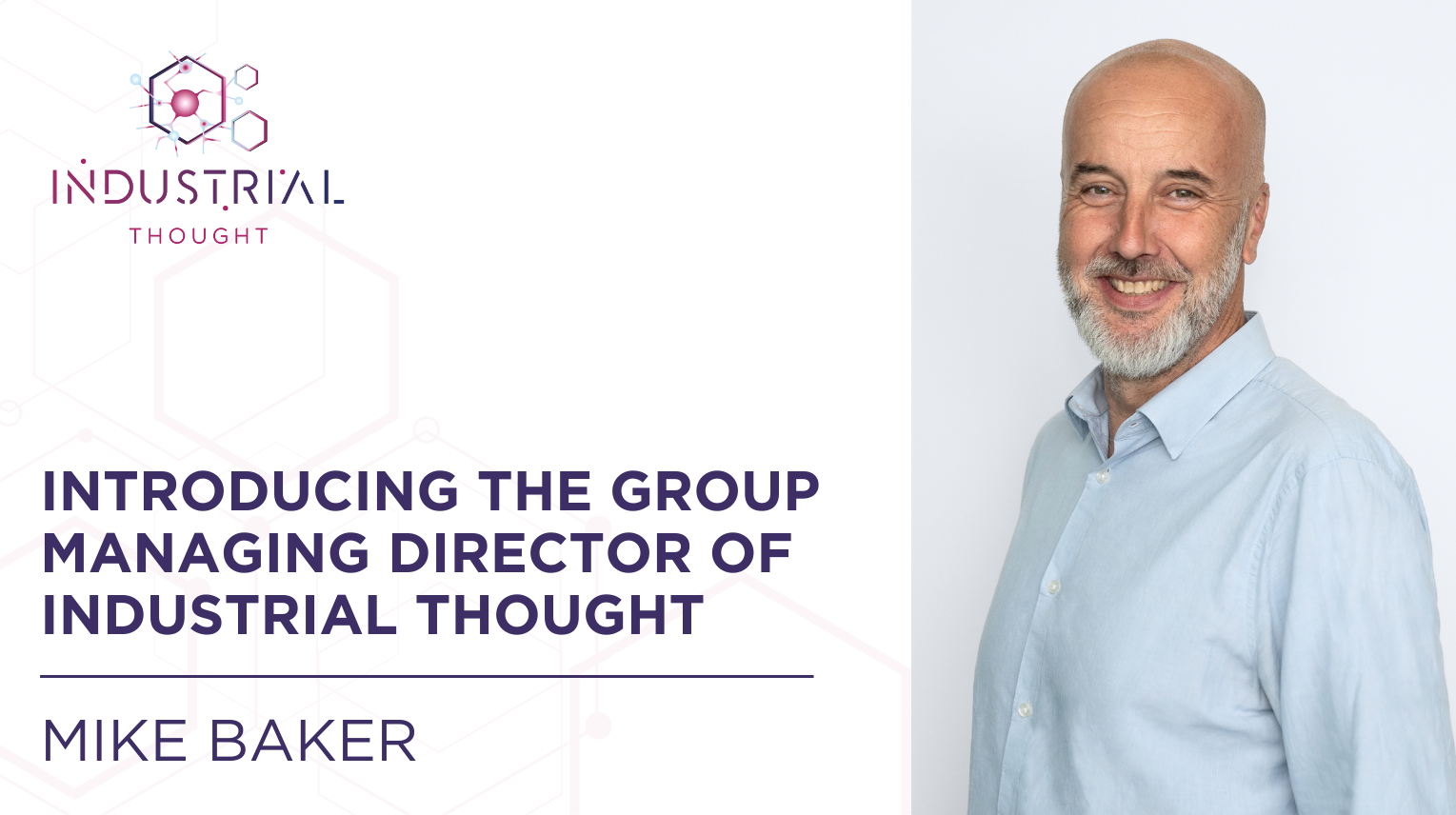London, January 2026: Raw Knowledge, data specialists within the Industrial Thought Ltd group, today announces a new partnership with Adapa Advisory where it will provide its Managed Smart Data platform to clients across wealth management and other financial institution segments, supporting them with more effective and efficient data management.
Raw Knowledge’s Managed Smart Data platform creates a single, validated view of disparate data sources so businesses can streamline their operations, make better data-driven decisions, and therefore sustain long-term growth. The platform also helps businesses meet their regulatory obligations by allowing them to maintain a clear audit trail with its traceable data lineage functionality.
Adapa Advisory provides strategic insights and advice to its clients across the UK wealth management and banking sector. The firm chose to work with Raw Knowledge because of its innovative use of technology, deep data management expertise and proven track record in excess reportable income (ERI) data. This helps wealth managers provide accurate tax reporting on offshore investments and provides a foundation for broader use cases and further growth.
Raw Knowledge is a specialist provider of data management solutions designed to help financial institutions turn complex data into actionable, auditable insights. The business was originally incubated within tax technology sister company Financial Software Ltd (FSL) before becoming a standalone company within the Industrial Thought Ltd group in 2024.
Preya Patel, Managing Director of Raw Knowledge comments: “We’re incredibly excited to be partnering with Adapa Advisory and engage with its clients on their data management strategies to provide pragmatic, cost-effective solutions.
“With over 25 years’ experience in financial data management, we understand the challenges businesses face when attempting to establish one clean, consistent and harmonised view of all their data sources.
“That’s exactly why we developed the Managed Smart Data Platform – no matter what form data takes or where it comes from, our platform can create a traceable and harmonised view of disparate data sources so users can streamline their operations, improve business agility and have better access to clean, consistent and reliable data.”
Mark Kerns, CEO of Adapa Advisory comments: “By collaborating with Raw Knowledge through its Managed Smart Data platform we’re supporting its strategic business development while strengthening our own advisory services, where robust data management is critical.
“Business growth, legacy technology, complex operating models and asset diversification have created an increasingly complex financial services landscape. Firms are responding through change programmes aimed at improving efficiency while controlling costs. But data challenges around data extraction, data accuracy and data validation continue to drive manual processes that are time-consuming, costly and prone to error. To help address this, by investing in their data management, we’re confident we can help firms can unlock valuable insights that deliver significant cost savings and, crucially, support long-term growth.”
ENDS
About Raw Knowledge
Raw Knowledge is a specialist data provider and data management firm under the Industrial Thought group of companies. Its pioneering Managed Smart Data platform helps businesses make better, data-driven decisions and streamline their operations by creating a traceable and harmonised view of their disparate data sources.
About Adapa Advisory
Adapa Advisory provides strategic insights and pragmatic advice to help financial institutions enhance their business performance in the post trade and securities services arena.
The importance of technology
A quarter of investors would consider switching from wealth managers that fail to modernise and embrace new technology, according to the latest research from Avaloq.
The research, conducted among over 3,000 investors and 300 wealth managers across Europe, Asia and the Middle East, found that a willingness to embrace technology was a key driver of client trust. Indeed, two thirds of investors reported that being able to investment analytics and portfolios visualization was “crucial” to building trust with their adviser.
For investors in the UK, Avaloq found that technology plays an even bigger role when it comes to establishing trust with their wealth manager. 72% of UK investors surveyed noted the importance of being able to see investment analytics and portfolio visualization and being shown the impact of their investment decisions on their portfolio.
Despite the importance to investors, nearly half (44%) of wealth managers surveyed described their technology systems as outdated and nearly a third (31%) said their systems were not suited to their needs. Further, half of wealth managers in the UK do not use investment advisory technology with clients.
“Outdated” and “confusing”
Avaloq found the key reasons behind this were that user interfaces were not optimised for client presentations and the systems being “too confusing” for clients. Other barriers to technology use included the inability to hide sensitive information and systems being difficult to navigate.
One pain point highlighted by UK wealth managers, in particular, was the lack of integration between various technology systems. Avaloq found that 57% of UK wealth management professional feel their systems are not well integrated.
Suman Rao, UK Managing Director at Avaloq commented: “Our research reveals that while wealth managers are under increasing pressure from clients to incorporate technology into their offering, many are struggling to keep up due to complex, outdated and poorly integrated technology systems.
“Despite this, their reliance on technology is growing by the day and demand from clients is only going to increase. If wealth managers want to remain competitive and ensure they are delivering top client service, they must have a well-functioning technology ecosystem.”
The rising demand for digital
Rao’s comments are supported by separate research, commissioned by digital advice platform Dynamic Planner and conducted by AdviserSoftware.com, has shown that demand for digital solutions is on the rise across all income and age groups.
Dynamic Planner found that half of UK consumers want to receive personalised information electronically from their advisers to track pensions, investments and to access personalised content. 61% of the 4,000 consumers surveyed would like to do this via a mobile phone app.
“The findings in this report show that for our industry, embracing technology is an opportunity that should be ignored at its peril,” warned Dynamic Planner CEO Ben Goss.
Despite increasing demand for technology, the need for human interaction remains strong among investors.
Across the age groups surveyed by Dynamic Planner, an average of 57% still want to speak to a financial adviser to obtain investment advice, and 62% want digital solutions and human interaction to work in tandem.
Alongside in-person meetings with their financial adviser, the research found that consumers would like to track their financial information on a mobile phone app. This desire to combine the two increases to 80% of 18 to 34-year-olds. When looking at income levels, 81% of those earning £60,000 annually want to track their finances via an app. This rises to 88% for those earning £80,000 annually.
Financial services group Industrial Thought Ltd has announced the launch of its subsidiary Raw Knowledge, a specialist data provider and consultant delivering a comprehensive Excess Reportable Income (ERI) solution.
Backed by its proprietary database, Raw Knowledge offers the most in-depth, accurate ERI data available, tackling one of the most challenging issues affecting investors – reporting on offshore investments. It also provides expert end-to-end consultancy for various financial instruments, including offshore funds, fixed income and investment trusts. All the information is tailored to suit the customer’s needs, simplifying the process of determining a client’s tax liabilities and submitting accurate reports to HMRC.
Raw Knowledge has a proven track of quality ERI data delivery as part of investment tax specialists Financial Software Ltd (FSL). Its team was vital in supporting FSL’s ERI solution as part of its market-leading capital gains tax (CGT) software, CGiX. As the data team, its customer base, and capabilities grew, the decision was taken by parent company Industrial Thought to create a separate entity, giving both companies more freedom to develop their products and services. Raw Knowledge and FSL are now both subsidiaries of the Industrial Thought group of companies.
Preya Patel, Raw Knowledge Managing Director, explained: “With each of our offerings, Raw Knowledge helps reduce firm’s operational costs, minimise their risk and keep their clients happy. We are extremely proud of how our team and its capabilities have evolved so far, and we look forward to exploring new ways to lead data innovation, which will be crucial for the future of financial services.”
Mike Baker, Industrial Thought Group Managing Director, added: “This new structure enables Raw Knowledge to support its current customer base while investigating new avenues and markets. It is an exciting time for the team, and we will be collaborating with them closely to develop pioneering solutions for the financial services industry that unlock the full power of financial data. By doing so, we hope to help the industry become more agile, insightful and open.”
Industrial Thought is committed to bringing expertise and innovation together in a best-of-breed ecosystem. Its collaborative approach has led to several partnerships that are helping to drive the creation of integrated, innovative products and services for the wealth industry.
– ENDS –
About Industrial Thought Ltd.
Founded in 2013, Industrial Thought Ltd is the parent company for a group of companies in the field of investment taxation, financial data, and related consultancy services. It aims to drive transformation by creating a complete suite of data, platform, and marketplace services to enhance capabilities and accelerate innovation.
Companies within Industrial Thought include:
- FSL (Financial Software Ltd), a provider of specialist investment tax solutions and the creator of CGiX, the market-leading capital gains calculator.
- Raw Knowledge, which creates, compiles, and validates specialist financial information underpinning the group’s wealth management products and services, such as tax reporting.
Companies under the Industrial Thought group are supported by its proof-of-concept lab, Thought Train, focused on prototyping and assessing the viability of developments.
For media enquiries, please contact: Doug Hunter: tel: +447510381111, doug@socontent.co.uk OR Samantha Armstrong: tel: +971501582958, samantha@the-prcompany.com
I have the pleasure of sharing with you the official launch of the Industrial Thought group’s newest company, Raw Knowledge.
Raw Knowledge is a specialist data provider and data consultant. It launches today with two initial core offerings:
- Its comprehensive excess reportable income (ERI) data solution
- And its bespoke data consultancy service.
ERI data
The ERI data solution does the heavy lifting of gathering hard-to-find, complex offshore funds data so firms can secure a competitive advantage and more easily meet their clients’ regulatory needs. It provides firms with a full data set for ERI tax reporting, including fields rarely provided on a fund manager’s original documentation such as equalisation rates and the identification of asset breakdowns.
What makes the offering truly unique is that, unlike standard data vendors, Raw Knowledge works specifically on a firm’s given fund universe. This means its expert team of data analysts will reach out to fund managers directly and provide the exact data relevant to a firm, in the format they want.
Data consultancy
Raw Knowledge’s ERI data solution is supplemented by its bespoke data consultancy service which provides firms with a simple, comprehensive picture of the tax treatment for even the most complex of instruments.
Whether it’s reporting or non-reporting funds, VCTs, equities or fixed income, Raw Knowledge can source the information a firm needs to help determine their clients’ tax liabilities. Its team will obtain original source documentation from issuers and fund managers, as well as further information from vendors and HMRC, so that the data supplied is up-to-date, traceable and verified. This helps firms minimise their risk, reduce operational costs, and better meet their clients’ regulatory needs.
Raw Knowledge and Financial Software Ltd
Many of you will already be familiar with the team at the Raw Knowledge as they originally formed the data team of Financial Software Limited (FSL), providing CGiX customers with access to quality ERI data as part of FSL’s Offshore Reporting Funds (ORF) solution.
They have been a vital part of FSL’s operations and development over the last few years, working hard behind the scenes to support CGiX clients. But, in recent years, as their team, customer base and capabilities grew, the Industrial Thought group took the decision that the data operations should separate from FSL to form their own company that would develop these data-specific offerings and services further.
This new structure as sister companies under the wider Industrial Thought group gives both FSL and Raw Knowledge the room to do what they do best, deliver the best solutions possible to their customers, and allow them to explore newer avenues and markets.
Pioneering solutions
Over the coming months, Raw Knowledge will work in close collaboration with our technology incubator lab Thought Train to develop pioneering solutions for the financial services industry that unlock the full power of financial data. By doing so, Raw Knowledge hope to help the industry become more agile, insightful and open.
This is an exciting time for the Raw Knowledge team and the wider Industrial Thought group. If you’d like to learn more about the new company and keep up to date with all the interesting developments in their pipeline, please visit Raw Knowledge’s new site and follow their LinkedIn page.
Mike Baker, Group Managing Director
Women set to inherit trillions
Roughly $83 trillion (£62.8 trillion) of wealth is expected to be transferred between generations globally within the next 2o to 25 years. But, with women generally outliving their male partners, intragenerational wealth transfer is likely to come before intergenerational inheritance.
UBS estimate that around 10% of this $83 trillion figure will be shifted horizontally between spouses in the next ten years, in what they’ve dubbed the ‘Great Horizontal Wealth Transfer’.
Generally speaking, wives in heterosexual relationships are more likely than their husbands to be widowed and, thus, inherit the wealth. This is because women, on average, have a higher life expectancy. In the UK, the average life expectancy for women is nearly 83, compared to just 79 for men. As a result, even if couples married at the same age, wives would be more likely to outlive their partners. However, women are also more likely to be younger than when they get married, further increasing their chance of widowhood and, in turn, the likelihood of wealth being passed on to them.
According to Wealth-X, a quarter of ultra-high-net-worth (UHNW) women – defined as those with more than $30 million (£22.6 million) in assets – have acquired their wealth through inheritance. As wealth begins to shift intragenerationally, these wealthy women will be faced with a choice over who to trust with their finances. And, according to research, most will not continue with the same financial adviser, with 70% of women switching within a year of their spouse’s death.
A “critical battleground”
So, what does this mean for wealth managers? Paul Donovan, chief economist at UBS Global Wealth Management, suggested that this intragenerational transfer, along with other broader forces in the economy, will add to the “feminization” of wealth management.
“With women’s incomes and wealth rising, combined with inheritances for both older and younger inheritors, analysts expect women will make up a growing share of high net-worth investors and consumers,” Donovan said, adding this had important implications for the industry as clients will likely be “different people, with different ideas and different things they want to do with their wealth.”
Affluent women approach wealth management somewhat differently than their male counterparts, according to research by McKinsey & Co. As a group, they are more likely to seek professional advice and less likely to feel confident about their own skill at financial decision making. McKinsey found that female decision makers also tended to be less risk tolerant and more focused on life goals. In seeking an adviser, they tend to place more emphasis on a personal fit and are more likely than males to identify a life event as their motivation to seek guidance.
Consequently, McKinsey suggest that women’s wealth will become a “critical battleground” for wealth management firms in the future.
“As wealth begins to pour into the hands of women, firms will need to commit to a much more systematic approach – transforming their business and client-service in ways that will acquire, retain, and serve women as long-term investors,” the report read.
McKinsey’s PriceMetrix indicates that by retaining baby-boomer women, the segment they see being most a risk of churning, firms could see one-third higher revenue potential.
Delayed until April 2025
The UK Financial Conduct Authority (FCA) have delayed the implementation of its Sustainability Disclosure Requirements (SDR) and investment labels regime until next year.
The new naming and marketing rules were originally set to come into effect in early December 2024. However, the FCA has decided to push the implementation to April 2, 2025, noting that it had “become clear” that it has taken “longer than expected” for some firms to make the required changes.
“Given the importance of getting SDR right for investors, we are seeking to take a pragmatic and outcomes-based approach to provide further support to those firms that may need additional time to operationalise any changes required,” the regulator explained.
“Where firms can comply with the new rules without requiring this flexibility, they should do so,” it added.
The SDR and investment labels regime aims to improve consumer trust and reduce greenwashing.
The naming and marketing rules state that if a an investment product wants to make sustainability claims, then it must apply to the FCA for one of four labels. To use one of these FCA approved labels, at least 70% of the overall portfolio arrangement would need to be invested in accordance with this sustainability objective.
Could the SDR regime go further?
For some, the SDR haven’t gone far enough.
Professional Adviser reported that Miranda Beacham, head of UK responsible investment at Aegon Asset Management, called on the FCA to include ethical funds in their remit.
Currently, ethical funds are not included in the SDR’s remit as they are considered values-based investment products by the FCA due to their exclusionary criteria.
“It is a shame,” Beacham said while speaking at the SRI Services Good Money Week conference, “but we will carry on lobbying to try and change the rules because we would like to see another label [for ethical funds].”
Advisers lack clear information
Advisers are finding ESG research confusing, according to the 2024 Advisers Attitudes Report by financial services firm Aegon.
47% of the 200 advisers surveyed said finding research “confusing” was a key issue for them when selecting ESG investments. A further 30% reported a lack of information was an issue in their selection process.
Despite adviser difficulties, the report found that almost 73% of firms have enhanced their ESG proposition to meet client demand. Almost a quarter (23%) said they’d increased the number of ESG options in their company-wide investment proposition. 12% said they have taken the significant step to include ESG as standard within all recommended portfolios.
This increased focus may come as a surprise to many given as investors’ appetite for ESG has been knocked in recent years. According to the Financial Times, clients have withdrawn a net $40 billion from ESG equity funds so far this year – the first year that flows have trended negative. But, according to Aegon’s report, the majority of advisers had seen little change in demand for the investments. In fact, 16% reported a net increase in client requests for these products in the past 12 months.
An evolving regulatory landscape
Aegon cautioned that if this demand is to be fully realised, more support would be needed from fund providers and industry bodies in terms of education, fund specific information and reporting for the benefit of both advisers and their clients. The firm remained optimistic that things would improve for advisors, however.
“We would expect future reports to show an improvement in the quality and clarity of research and fund-related communications following the introduction of Sustainable Disclosure Requirements [sic]. This should make it easier for consumers and advisers to navigate the ESG landscape,” the report read.
In April, the UK Financial Conduct Authority announced that it would to extend its Sustainability Disclosure Requirements (SDR) and investment labels regime to all forms of portfolio management services. The rules state that if a portfolio manager wants to make sustainability claims, then it must apply to the FCA for one of four labels. These labels relate to the portfolio’s sustainability objective. To use a label at least 70% of the overall portfolio arrangement would need to be invested in accordance with this sustainability objective.
At Industrial Thought, we believe ESG investing should be more transparent. We believe wealth managers should have easier access to accurate and explainable data which is why we invested £100,000 in specialist ESG ratings and analytics platform Integrum ESG.
A solution with Integrum ESG
Integrum ESG has been developed by investment professionals, for investment professionals, to solve the problems associated with opaque methodologies. Its platform offers a ‘glass-box’ approach to ratings, giving clear reasoning for its ESG scores and visibility into the underlying data. This then allows wealth managers to understand and explain a company’s ESG challenges and how it manages those challenges in the market.
Integrum’s platform blends human and artificial intelligence to capture, verify and display data for firms to analyse and assess. Its proprietary machine learning models capture and pull in a variety of data from company-disclosed sources. The captured data is then reviewed by its team of research analysts before being uploaded onto the Integrum ESG dashboard for its clients to see and assess.
If you’d like to learn more about Integrum ESG, get in touch.
Industrial Thought Ltd has announced the appointment of Mike Baker as its Group Managing Director. Industrial Thought is the parent company of a group of businesses specialising in investment taxation, financial data, and related consultancy services, which include Financial Software Ltd (FSL), creators of CGiX, the UK’s market-leading capital gains calculator.
With around 30 years of experience in the wealth management and technology sector, Mike has spent the last 12 months consulting for Industrial Thought, supporting the leadership team with strategy development and positioning as its portfolio evolves. Before that, he was Managing Director for the progressive financial software company FinoComp.
Mike Baker commented: “It has been a pleasure working with Industrial Thought’s Chairman David Pirrie and his team over recent months. Now I look forward to helping the team execute the plans we have developed as we expand our capabilities and maximise our impact with the quality, breadth, and detail of our securities taxation and corporate event data and well-supported technology products.”
Industrial Thought Chairman David Pirrie added: “Mike’s input has been invaluable during our latest stage of growth. His excellent industry reputation has been built on a long track record of proven success, which has been borne out during his time with us. Undoubtedly, he will add significant value leading the opportunities we are pursuing with new products, services, and related markets within the wealth management sector.”
Industrial Thought is committed to bringing expertise and innovation together in a best-of-breed ecosystem. Its collaborative approach has led to several partnerships that are helping to drive the creation of integrated, innovative products and services for the wealth industry.
About Industrial Thought Ltd.
Founded in 2013, Industrial Thought is the parent company for a group of companies in the field of investment taxation, financial data, and related consultancy services. It aims to drive transformation by creating a complete suite of data, platform, and marketplace services to enhance capabilities and accelerate innovation.
Companies within Industrial Thought include:
- FSL (Financial Software Ltd.), a provider of specialist investment tax solutions and the creator of CGiX, the market-leading capital gains calculator.
- Raw Knowledge, which creates, compiles, and validates specialist financial information underpinning the group’s wealth management products and services, such as tax calculation.
Companies under the Industrial Thought group are supported by its proof-of-concept lab, Thought Train, focused on prototyping and assessing the viability of developments.
Earlier start
According to HSBC’s Affluent Investor Snapshot 2024, which looks into the investment portfolios, behaviours, and priorities of affluent individuals around the world, the younger generations are beginning their investment journey earlier than their older counterparts.
On average, those in Gen Z (ages 25 to 27) began investing at 23, while Millennials (ages 28 to 43) began investing at 27. This compares to 33 for Baby Boomers (ages 60 to 69) and 31 for Gen X (ages 44 to 59).
In addition to investing earlier, Gen Z and Millennials are also dedicating a higher proportion of their income towards investing. Both Gen Z and Millennials invest 27% of their monthly net income, on average. This compares to 24% for Gen X and 22% for Baby Boomers.
Different investments
Affluent investors of all generations, on average, own four asset classes – with asset class diversification increasing with their level of investable assets. However, HSBC’s survey demonstrates a growing awareness and higher intent to own alternative investments among Gen Z and Millennials.
The younger generations exhibit a strong interest in adding private market funds and hedge funds to their portfolios over the next three years. 25% to 27% of Millennials reported high future interest in hedge funds, private credit funds and private equity funds, compared to just 19% to 20% of Baby Boomers.
Lavanya Chari, global head of investments and wealth solutions at HSBC Global Private Banking and Wealth, commented: “The fact that young investors are looking more closely at alternative assets serves as another tailwind for the asset class, as product and platform innovations improve accessibility for a wider range of investors, especially to private markets.”
On average, cash holdings represent 32% of an affluent investor’s portfolio. Of those who plan to change their asset allocation, however, over half (54%) intend to invest their current cash holdings – though this intent varies from generation to generation. Gen Z and Millennials plan to invest 61% and 56% of their cash, respectively, compared to just 49% of Baby Boomers.
Different goals
Financial goals also vary from generation to generation.
Gen Z were the only generation not to list ‘having enough insurance coverage’ within their top five financial goals, instead prioritising investing in properties and securing multiple income streams. In contrast, Baby Boomers’ prioritised planning for retirement and securing money for vacation or leisure.
All generations put gaining wealth for financial security as their first or second financial goals, with planning for retirement also making each generation’s list.
The Affluent Investor Snapshot captures insights from over 11,000 affluent investors, aged 25 to 69, with assets ranging from $100,000 to $2 million (around £75,570 to £1.5 million). The study was conducted by Intuit Research.
Bridging the collaboration gap
Global investment in fintech stood at $51.8 billion in the first half of 2024. This was the lowest level recorded since the first half of 2020, according to accountancy firm KPMG.
Against a challenging market backdrop, promising start-ups are struggling to find a route to market and financial institutions have an even greater need to ensure they are making informed and smart decisions.
Finbridge Global helps tackle this issue. Its global platform allows financial institutions to quickly source, assess and compare an extensive array of fintech solutions but goes beyond a simple directory.
Finbridge’s proprietary intelligent assessment engine offers a streamlined approach to accessing a fintech’s capacity to effectively and efficiently deliver results, providing a dependable, uniform and impartial method for evaluation as well as real-time feedback and in-depth analysis.
Assessments can be tailored to company preferences and project requirements, resulting in a substantial reduction in research and procurement timelines for financial institutions and dramatically expediating their Request for Information (RFI) processes. This means firms can partner with the right fintech and help to propel them forward.
When financial institutions are empowered to quickly identify and nurture growth opportunities, the whole financial services industry benefits. It was this shared belief in the power of collaboration to fast-track the future of financial services that forms the basis of Industrial Thought’s partnership with Finbridge.
Fast-tracking the financial services industry
Industrial Thought aims to drive industry transformation by creating a complete suite of data, platform, and marketplace services that enhance capabilities and accelerate innovation. It believes that by helping start-ups get the funding and support they need, complacency is quashed, and the financial services industry is pushed to be the best it can be.
“One of these start-ups could be the next FNZ or Avaloq,” said David Pirrie, chair of Industrial Thought, “Finbridge’s platform helps get promising fintechs off the ground and when start-ups are nurtured, the next generation of products and services are created and we as an industry become more dynamic.”
The oldest company within the Industrial Thought group is investment tax specialists Financial Software Ltd (FSL). Founded in 1994, FSL simplifies the process of investment tax management, analysis and reporting. Its flagship product, CGiX, is trusted by leading members of the UK’s wealth and investment community to accurately calculate their taxable wealth. Though today CGiX stands out as a market leader, the early days for FSL weren’t easy.
“Securing funding and our first partners was no easy feat, despite the strength of our solution. Had we had a platform like Finbridge’s things could have been much easier for us,” explained Pirrie.
Barbara Gottardi, CEO and Founder of Finbridge Global, added: “As David has explained, our industry can reap major benefits from technology innovators. Yet, while most of these organisations are keen to engage fintechs, they struggle to get the information they need to establish trust. Our platform simplifies the process, promotes transparency, and ultimately facilitates progress.”








